If the bookmakers are to be believed, there are three clear favourites for victory at this year’s Eurovision Song Contest. Måns Zelmerlöw from Sweden and Guy Sebastian from Australia will each deliver three minutes of pop music, carefully tailored to reflect the latest musical trends without sounding too dangerous. Rounding out the trio of contenders, however, are Il Volo from Italy, a trio of young men whose own musical direction feels like it’s a few years out of time – a take on contemporary, middle-of-the-road pop with operatic harmonies that we can safely describe as “popera”. The obvious reference point (right down to the group’s name) is Il Divo, the multinational vocal group who achieved huge success but whose commercial peak now lies the better part of a decade ago.
So is this really the right time to be trying popera at the Eurovision Song Contest – and, indeed, is there ever a right time to do so? With the contest taking place in Vienna, a city that has seen its fair share of operatic premières in its long history, and with Il Volo splitting fan opinion in terms of their prospects on the Eurovision scoreboard a few short weeks from now, here at escgo! we thought this would be an excellent opportunity to look back at some of the moments when (p)opera in its various forms has collided with the unique theatrical stage that is the Eurovision Song Contest.
Amaury Vassili – Sognu
This is the obvious place to start, since Amaury’s Corsican crescendo was the bookmakers’ favourite going into the 2011 contest in Düsseldorf. Head of delegation Bruno was even confident enough to ask a busy press conference whether it agreed that the song was a winner. (Awkwardness ensued.) Maybe it was the difficult song structure with no obvious chorus, maybe it was the lower key that they used compared with the studio version, or maybe it was just Amaury’s sweaty and uncomfortable appearance, but France was thoroughly overshadowed in the “authenticity” stakes by draw-neighbour Italy, ultimately limping home in 15th place. Greece and Belgium did see fit to award the song their “douze points”, though, so it clearly found some kind of audience!
Cezar – It’s My Life
If France 2011 was an attempt to realise a sober, serious version of opera-influenced pop on the ESC stage, the legendary Romanian entry from two years ago represents a very different way of doing things. Cezar may be a serious countertenor in his regular professional life, but his appearance at the contest will go down in history for its sheer excess, with its studded leather outfits, crucifixes, writhing backing dancers and hydraulic platforms. Making no excuses for its own trashiness, Cezar was the seventh favourite with the televoters – and gained easily the biggest cheer of the night from the moderately drunken public watching the show on the big screen in Malmö’s Folkets Park! – but was thoroughly nobbled by the juries to end up in 13th place overall. So much for jurors being instructed to vote on the artists’ vocal talents!
Malena Ernman – La voix
The first time many people realised Cezar was actually a respected, working singer and not (just) a weird novelty act was when Malena Ernman tweeted her delight about his ESC participation. Ernman herself could hardly be more respected in the opera world, and she has also attracted media attention in Sweden for her anti-fascist political engagement in recent times. Back in 2009, though, she threw herself into the Fredrik Kempe collaboration La voix, a song that proved that (a) recorded backing vocals at Melodifestivalen can be difficult to recreate on the ESC stage, and (b) opera singers trying to sing in a “normal” register sound kinda… well, weird. Not yet knowing what would follow the next year, the resulting 21st-place finish seemed like a real low point in Swedish ESC history.
David D’Or – Leha’amin
Speaking of singing in a normal register, David D’Or might have been all set to qualify from the fairly weak semi-final of the 2004 contest with his bilingual pop aria – only to ruin it all by lapsing into a peculiar low grunt for a “la la la” chorus right at the end of the song. An embarrassing green room interview with host Meltem Cumbul and an early trip home to Israel were the only rewards for his labours.
Bonaparti.lv – Questa notte
Some people have suggested that the Latvian entry to ESC 2007 is the nearest counterpart to Il Volo in recent Eurovision history. There are certainly a few parallels musically, although this year’s Italian entry comes across as significantly more authentic even in its crossover popera stylings. That’s not necessarily a huge surprise – Questa notte was written by Scandinavians, after all, and its performers included a singer who turned up at the following year’s contest as a Europop-murdering pirate, so his commitment to the operatic cause is debatable. (And surely Il Volo would never dream of wearing top hats with jeans?) Still, Bonaparti.lv’s pastiche managed to qualify from the bloodbath that was the 2007 semi-final and land a respectable 16th place in the grand final – Latvia would bite your hand off for a result that good nowadays!
Eleonore Schwarz – Nur in der Wiener Luft
Opera pastiche in a Eurovision context used to look and sound quite different. Let’s go all the way back to the early days and the 1962 contest, when Eleonore Schwarz from Austria delivered a three-minute tourist guide to the delights of the nation’s capital. Accredited press at this year’s event could do worse than to follow her instructions – a day that involves St. Stephen’s Cathedral, some Strauss music and a slice of Sachertorte is a good Viennese day indeed. The juries around Europe disagreed, however, perhaps turned off by the frankly manic last 30 seconds of Eleonore’s performance, and Austria went home with no points at all.
https://www.youtube.com/watch?v=l9xkV-jQjW8
Çetin Alp and the Short Waves – Opera
Of course, when it comes to opera and “nul points”, there’s a reason why few people remember Eleonore Schwarz – and his name is Çetin Alp. This unfortunate fellow, who sadly shuffled off this mortal coil just over a decade ago, represented Turkey at ESC 1983 with a song extolling the virtues of – you guessed it – the opera experience itself. The lyrics attempt to overcome the difficulty of the Turkish language for European ears by limiting the chorus to mentions of Carmen, Aida, Tosca, Figaro and Fidelio, accompanied by the word “opera” over and over again. Despite this, Çetin seemed uncomfortable throughout, while his backing group the Short Wave(s) looked as if they’d stepped straight out of an audition for a Dschingis Khan tribute act, and the juries around Europe were unimpressed – though at least Çetin got to share last place with the equally unfortunate Spanish singer. His tale would have a sad ending, as chronicled in Tim Moore’s excellent book Nul Points, but awesomely styled lyricist Aysel Gürel went on to redeem herself by penning Iki dakika in 1991, one of Turkey’s most successful entries at the time.
Ingvar Wixell – Absent Friend
And we finish with a song that might not have made many waves musically, but that occupies a special place in Eurovision history for different reasons. Hugely respected Swedish baritone Ingvar Wixell was perhaps an odd choice to represent his country at the 1965 contest, and his professionally delivered song, Annorstädes vals, achieved an unremarkable 10th-place finish in a competition that boasted arguably the first truly contemporary Eurovision song as its winner. What made Wixell’s song notable was that Annorstädes vals had actually become Absent Friend by the time it reached the ESC stage, the Swedes taking advantage of a loophole in the rules to perform their entry in English. The powers-that-be hadn’t expected anyone to want to sing in a non-native language before, so there was no regulation prohibiting it. Ingvar’s little trick may not have helped him on the scoreboard, but it did prompt the European Broadcasting Union to introduce a “national language only” rule starting from the 1966 contest – a rule that was briefly waived in the mid-1970s but otherwise lasted until finally being scrapped in 1999.
https://www.youtube.com/watch?v=v3bTnlqGsog
Those are just some of the more notable examples of (p)opera on the Eurovision stage. We could have stretched the definition to include the likes of Croatia 2013 or Slovenia 2007 and its amazing hand-light gimmick, for instance – but even if we had, the one thing that unites all of the entries mentioned above is that they didn’t do particularly well on the scoreboard.
So this a bad sign for Il Volo? Possibly not: for a start, this year’s Italian trio already enjoys a reasonably high commercial profile in some of the competing countries, and their youthful image and the contemporary pop touches to Grande amore mean that it comes across as far more than merely a novelty entry. At the same time, it could be that there is a fundamental unwillingness among ESC televoters and jurors to buy into the charms of operatic harmonies and vocalising in a context where they’re expecting more typical pop sounds.
With that in mind, fans will be watching carefully to see if Il Volo also fail on the Eurovision stage – because if they do, that might prove once and for all that (p)opera and Eurovision do not mix. We’ll find out very soon!
BONUS: NATIONAL FINAL HELL
As any good fan knows, sometimes the songs that don’t make it to the international stage are the most interesting of all. The Three Tenors certainly have a lot to answer for, spawning pale imitators in the Norwegian final of 1996, the German finals of 1998 and 2001 and the UK final of 2005. But there have been some far more memorable and occasionally bizarre examples of operatic flavours colliding with the wacky world of the national preselection over the years – including one that could have given Il Volo a run for their money in Vienna. Here are just a few of our favourites to conclude this article!
Opera Skaala – Heart Of Light (Finland 2015)
De Opera – De opera (Belgium 1981)
Nikita – Kraljica noći (Croatia 1999)
Arwin Kluft – Turiddu (Netherlands 2003)
Vielharmoniker – In der Oper (Germany 1980)
Elena Sinyavskaya – Via Lattea (Belarus 2014)
Haakon Pedersen & Elisabeth Berg – Nattens drottning (Sweden 1989)
…and last, but certainly by no means least:
Joel De Luna, Mati Kõrts, Jassi Zahharov & Mait Trink – Opera On Fire (Estonia 1999)
If you think there are any obvious ESC and NF (p)opera classics we’ve missed, why not let us know at @escgo or in our chat?

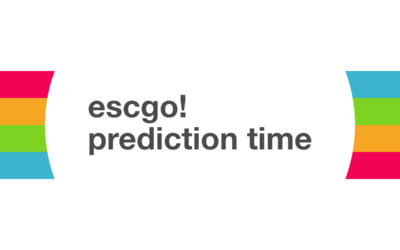

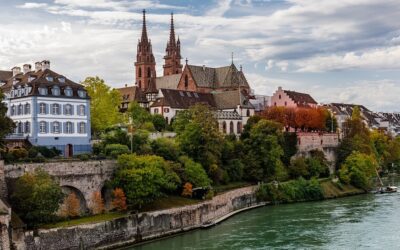

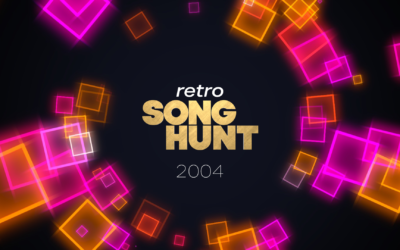
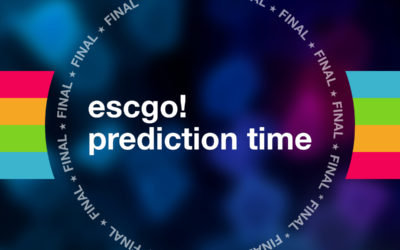
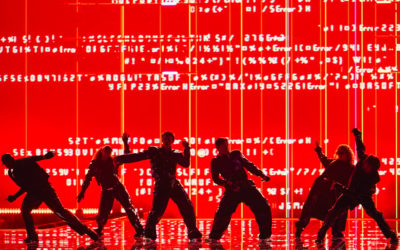
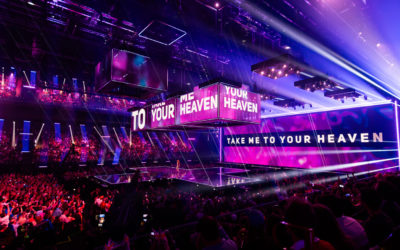
0 Comments